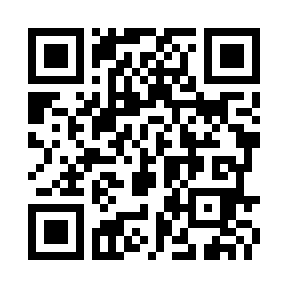クイズレットのアプリをお使いの方は次のurlからご利用できます。
oretankiokuさんのクラス | Quizlet

QUIZLETの英作文一覧
You need only ask him to pay the debt.
君は彼に借金を払ってくれるように頼みさえすればよい。
- You just have to ask him to pay the debt.
- Simply ask him to pay the debt.
- All you have to do is ask him to pay the debt.
- Asking him to pay the debt is all that’s required.
- Just requesting him to pay the debt will suffice.
I don’t think you can gain his ear.
あいつは君の言い訳には耳を貸さないと思うよ。
- I don’t think you can get his attention.
- I don’t think you can win his favor.
- I don’t think you can capture his interest.
- I don’t think you can engage him.
- I don’t think you can attract his attention.
You ought to thank him.
君は彼に感謝すべきだ。
- You should express your gratitude to him.
- It would be appropriate for you to thank him.
- You really should show appreciation to him.
- You owe him a word of thanks.
- It’s advisable for you to extend your thanks to him.
You had better not keep company with him.
君は彼と交際しない方がよい。
- It would be wise to avoid spending time with him.
- You should steer clear of associating with him.
- It’s advisable not to hang out with him.
- You’d be wise not to keep company with him.
- You might want to refrain from being around him.
You can trust him to keep his word.
君は彼が約束を守ると信じてよい。
- He’s reliable when it comes to keeping promises.
- You can count on him to honor his commitments.
- He’s someone you can rely on to uphold his promises.
- You can have faith in him to fulfill his pledges.
- He’s trustworthy and will follow through on what he says.
Do you know who he is?
彼が誰だか知っていますか。
- Are you familiar with his identity?
- Can you identify him?
- Do you recognize him?
- Are you aware of his identity?
- Do you have any knowledge of who he is?
I’m certain of your success.
僕は君が成功すると確信している。
- I have no doubt about your success.
- I am confident that you will succeed.
- Your success is assured in my mind.
- I am convinced that you will be successful.
- I am sure you will achieve success.
You should not give him up for lost.
彼が死んだものと諦めてはいけない。
- You shouldn’t abandon hope for him.
- Don’t count him out just yet.
- Keep faith in his abilities.
- Don’t write him off prematurely.
- Hold out hope for his recovery.
You work as hard as he did at your age.
君は彼が君の年だったころと同じほどよく働く。
- You’re putting in just as much effort as he did when he was your age.
- Your level of dedication matches his when he was your age.
- You’re working as tirelessly as he did when he was your age.
- You’re as diligent as he was in his youth.
- At your age, your work ethic is on par with his.
Have you ever seen him swimming?
君は彼が泳いでいるのを見たことがありますか。
- Have you ever witnessed him swimming?
- Have you observed him swimming before?
- Have you caught sight of him swimming?
- Have you beheld him swimming?
- Have you had the opportunity to watch him swim?
You should get your hair cut.
髪を切ってもらった方がいいよ。
- You ought to trim your hair.
- It’s advisable to have your hair trimmed.
- You need to schedule a haircut.
- It’s time for you to have your hair cut.
- You would benefit from getting your hair cut.
Can you ride a horse?
君は馬に乗る事が出来ますか。
- Are you capable of riding a horse?
- Do you know how to ride a horse?
- Are you able to handle a horse?
- Have you ever ridden a horse before?
- Do you possess the skill to ride a horse?
You should work hard.
君は熱心に勉強すべきだ。
- It’s advisable that you put in a lot of effort.
- You ought to exert yourself.
- It’s recommended that you apply yourself diligently.
- It would be wise for you to labor diligently.
- You need to dedicate yourself to your work.
You must study hard.
君は熱心に勉強しなければならない。
- Studying diligently is imperative.
- It’s essential that you apply yourself to your studies.
- You’re required to devote yourself to studying.
- It’s mandatory for you to put in considerable effort into your studies.
- You need to focus intensely on your studies.
Do you have a temperature?
熱はありますか?
- Are you running a fever?
- Is your body temperature elevated?
- Do you feel feverish?
- Have you checked your temperature?
- Are you experiencing any signs of a fever?
You must not come in.
君は入ってはいけない。
- You are not allowed to enter.
- You are forbidden from entering.
- It is imperative that you do not enter.
- You should refrain from entering.
- Entering is strictly prohibited.
Are you a Japanese student?
君は日本人の学生ですか。
- Are you studying Japanese?
- Are you a student from Japan?
- Do you study Japanese language?
- Are you enrolled in Japanese classes?
- Are you learning Japanese as a student?
Do you keep a diary?
日記をつけていますか。
- Do you write in a diary?
- Do you maintain a journal?
- Do you record your thoughts in a diary?
- Are you in the habit of journaling?
- Do you document your daily experiences in a diary?
Do you know how to cook meat?
君は肉の料理の仕方を知っていますか。
- Are you familiar with cooking meat?
- Do you possess the skill of preparing meat dishes?
- Are you capable of cooking meat?
- Are you adept at preparing meat?
- Are you skilled in the art of cooking meat?
You could count to ten when you were two.
君は二歳の時に十まで数えることができた。
- At the age of two, you were able to count to ten.
- You had the ability to count to ten by the time you were two.
- Even at the age of two, you could count to ten.
- By the age of two, you were already capable of counting to ten.
- You demonstrated the skill of counting to ten when you were only two years old.
You work too hard.
君は働きすぎです。
- You exert yourself excessively at work.
- Your workload seems excessive.
- You put in too many hours at work.
- You’re overdoing it with your work efforts.
- You’re pushing yourself too much at work.
You had better study English thoroughly.
君は徹底的に英語を学んだほうがよい。
- It’s advisable for you to thoroughly study English.
- You should make a concerted effort to study English.
- It would be in your best interest to study English comprehensively.
- You ought to focus on studying English in depth.
- It’s recommended that you delve deeply into your English studies.
You may as well leave at once.
君はすぐに出発する方がいい。
- You might just as easily depart immediately.
- You might as well go away right now.
- Leaving immediately would be just as good for you.
- You might consider leaving right away.
- It would be equally fine for you to depart immediately.
You must go home at once.
君は直ちに家へ帰らなければならない。
- You need to head home immediately.
- It’s imperative that you go home right away.
- You should make your way home without delay.
- You are required to return home immediately.
- It’s necessary for you to leave for home at once.
You must be a late riser.
君は朝寝坊に違いない。
- You seem like someone who sleeps in.
- You appear to be someone who wakes up late.
- You’re probably someone who doesn’t wake up early.
- You strike me as someone who enjoys sleeping in.
- You give off the impression of being a person who wakes up late.
What do you have for breakfast?
君は朝食に何を食べますか。
- What is your usual breakfast?
- What’s on your breakfast menu?
- What do you typically eat in the morning?
- What’s your morning meal?
- What breakfast foods do you enjoy?
Do you have bread for lunch?
君は昼食にパンを食べますか。
- Is bread your lunch choice?
- Are you having bread for lunch?
- Will you be having bread during lunch?
- Are you planning to eat bread at lunchtime?
- Is bread on the menu for your lunch?
You won’t be late, will you?
遅刻しないよね?
- You’ll arrive on time, won’t you?
- You’re not going to be late, are you?
- You’ll make it on time, won’t you?
- You won’t arrive late, will you?
- You’re going to be punctual, aren’t you?
You must have stayed up late.
君は遅くまで起きていたにちがいない。
- You must have burned the midnight oil.
- You must have pulled an all-nighter.
- You must have been burning the midnight oil.
- You must have been up late.
- You must have stayed awake into the wee hours.
You ought to be ashamed.
あなたは恥じるべきです。
- You should feel ashamed.
- You should be embarrassed.
- You should hang your head in shame.
- You should feel mortified.
- You should have a sense of shame.
Who are you waiting for?
誰を待っている?
- For whom are you waiting?
- Whom are you waiting for?
- Who is it that you are waiting for?
- For whom are you anticipating?
- For whom are you expecting?
You must build up your courage.
君は胆力を練る必要がある。
- You need to bolster your courage.
- It’s essential that you strengthen your courage.
- You should work on fortifying your courage.
- You have to cultivate your courage.
- It’s imperative that you develop your courage.
Who(m) are you speaking of?
君は誰のことを言っているのか。
- About whom are you speaking?
- Whom are you referring to?
- Of whom are you speaking?
- About whom are you talking?
- Whom are you discussing?
Are you meeting someone here?
君は誰かとここで出会うの。
- Do you have a meeting scheduled here?
- Are you expecting to meet someone here?
- Are you rendezvousing with someone here?
- Are you waiting for someone to meet you here?
- Are you here to meet someone?
Your reading is very advanced.
君は大変読書力がある。
- Your reading skills are exceptionally high.
- You are very proficient in reading.
- Your reading level is quite advanced.
- You have a highly developed reading ability.
- You excel in reading comprehension.
Can you tell wheat from barley?
君は大麦と小麦の区別ができますか。
- Can you distinguish between wheat and barley?
- Do you know how to differentiate wheat and barley?
- Are you able to discern wheat from barley?
- Can you recognize the difference between wheat and barley?
- Do you have the ability to identify wheat and barley separately?
You look very pale.
君は大変青白い顔をしている。
- You appear quite pallid.
- You seem rather wan.
- Your complexion appears quite ashen.
- You have a rather sallow complexion.
- You’re looking rather peaky.
I’m proud of you.
私はおまえのことを誇りに思うよ。
- I admire you.
- You’ve done well, and I’m impressed.
- You’ve made me proud.
- You’ve really achieved something here.
- I have great respect for what you’ve accomplished.
You look bored.
君は退屈そうだ。
- You seem disinterested.
- Are you feeling unengaged?
- You appear to lack interest.
- You’re showing signs of boredom.
- You don’t seem very entertained.
Do you like to be kept waiting?
君は待たされるのが好きですか。
- Are you fond of waiting?
- Do you enjoy being made to wait?
- Are you comfortable with waiting?
- Do you prefer waiting?
- Is waiting something you appreciate?

